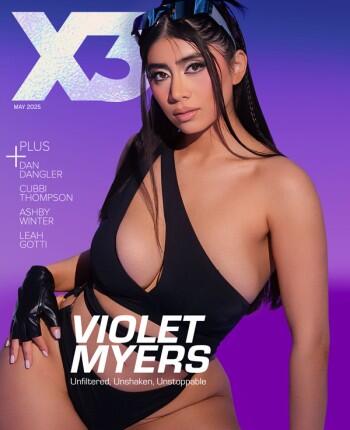LOS ANGELES — The debate over whether sex workers and sex-oriented businesses can apply for federal disaster relief loans through the U.S. Small Business Administration (SBA)’s “Coronavirus Aid, Relief, and Economic Security” (CARES) program continues, with a focus on the interpretation of the word “prurient.”
As XBIZ reported earlier this week, the language of the SBA’s application asks potential applicants for economic relief to first confirm they do not belong to one of several disqualifying categories.
The longest exclusion — which appears to be deliberately worded to target the largest segment of sex workers and sex-related businesses possible — states that the applicant must declare that they do not “present live performances of a prurient sexual nature or derive directly or indirectly more than de minimis gross revenue through the sale of products or services, or the presentation of any depictions or displays, of a prurient sexual nature.”
Although in 2020 this specifically worded exclusion may be interpreted to include many internet-based performers and businesses, the language actually dates from the mid-to-late 1990s.
A Clinton-Era Regulation
XBIZ contacted SBA’s spokesperson Mark W. Randle, at the agency’s Office of Disaster Assistance’s Field Operations Center — West, who pointed out that the language “did not originate with the CARES Act.”
“It is in accordance with the Code of Federal Regulations (CFR) that governs SBA disaster assistance,” Randle wrote, citing a Clinton-era 1996 document (amended in 1997 and '98).
The relevant passage reads:
Title 13. Business Credit and Assistance
Chapter I - Part 123
DISASTER LOAN PROGRAM
Subpart D — Economic Injury Disaster Loans
123.301 When would my business not be eligible to apply for an economic injury disaster loan?
Your business is not eligible for an economic disaster loan if you (or any principal of the business) fit into any of the categories in §§123.101 and 123.201…
Subpart C — Physical Disaster Business Loans
§123.201 When am I not eligible to apply for a physical disaster business loan?
(f) You are not eligible if your business presents live performances of a prurient sexual nature or derives directly or indirectly more than de minimis gross revenue through the sale of products or services, or the presentation of any depictions or displays, of a prurient sexual nature.
[61 FR 3304, Jan. 31, 1996, as amended at 62 FR 35337, July 1, 1997: 63 FR 46644, Sept. 2, 1998]
This language was part of a set of 1995 proposals drafted “in response to President Clinton’s government-wide regulatory review directive,” requesting “a page-by-page and line-by-line review of all of its existing regulations.”
At the time, the SBA claimed, the overhaul “reworded, renumbered and relocated” almost all its provisions, added “a few new or revised policies” and deleted “several sections” in order “to streamline and clarify the regulations.”
Prurient: "Shameful and Morbid"
XBIZ also spoke with industry attorney Lawrence Walters, of the Walters Law Group, who spoke about the controversy regarding the old-fashioned word “prurient” that is part of the application’s exclusionary language.
“The language has been around for all these SBA loans, but it obviously becomes much more of a matter of concern now since sexually oriented businesses have been dramatically impacted throughout the country,” Walters told XBIZ.
“I have not applied for an SBA loan on behalf of our clients, so I haven’t had to deal with it directly, but I’m aware of the language.”
Walters explained that the word “prurient” is defined in the law as “a shameful or morbid interest in sexuality.”
Obviously, Walters pointed out, “adult businesses could take the position that their content does not involve a shameful or morbid interest in human sexuality, but a healthy one.”
According to the attorney, “eligible people should apply for this loan, and if they deny it, it would be an unconstitutional condition on a government benefit.”
Walters also encourages people interested in applying to “check with their lawyers if they have more specific questions about the language of the application.”
The etymological origins of the word “prurient” are more mysterious and do not necessarily involve shame or morbidness. It’s attested in English in the 16th century, deriving from a similar Latin adjective with the connotation of “scratching a mental itch or longing” and “being wanton.”
The Latin verb “pruire” literally means “to itch.” According to etymological sources, in the mid-1600s the term “prurient” poetically shifted meaning in English from “itching” to “having an itching desire.” It is only a century later, in the 1750s, that the word gained the puritanical connotation of “lascivious and lewd.”
An Odd Way to Put Things
In “Prurient Interests,” a 2002 column on NPR’s Fresh Air program, UC Berkeley information studies scholar Geoffrey Nunberg pointed out the difficulty of building law around obsolete words that few people can define properly.
The Miller test, developed in the 1973 case Miller v. California, is used by courts all the way up to the United States Supreme Court for determining whether speech or expression can be labeled “obscene,” making it unprotected speech under the First Amendment.
By devising the Miller test, Nunberg explained, the Nixon-era Supreme Court set the standard for judging obscenity as follows: "'Whether, to the average person, applying contemporary community standards, the dominant theme of the material […] appeals to prurient interest.'"
"With minor variations, that formula has been widely used ever since then.”
To read Geoffrey Nunberg’s commentary on the word “prurient,” click here.








